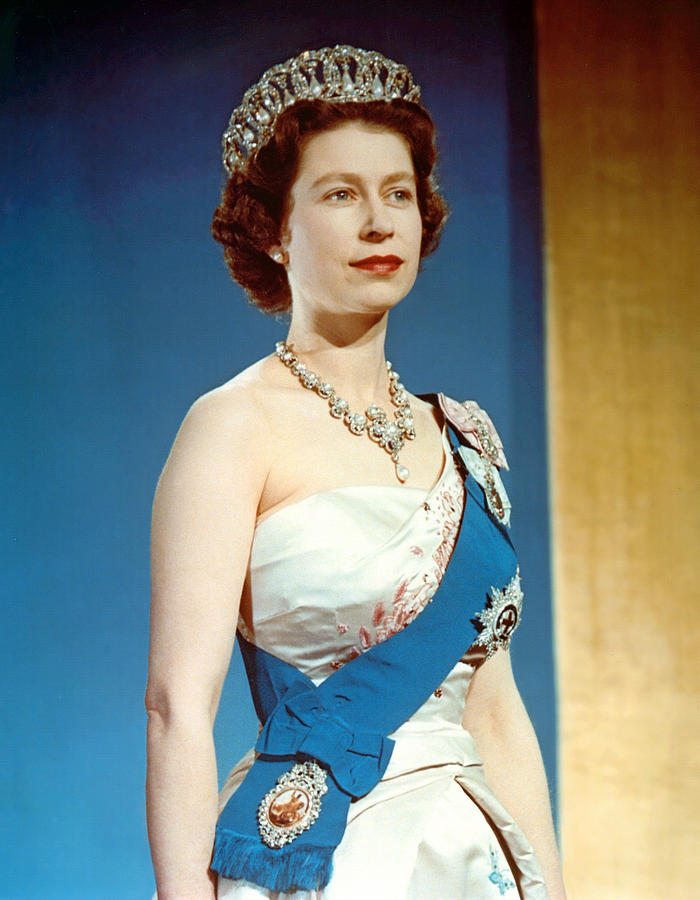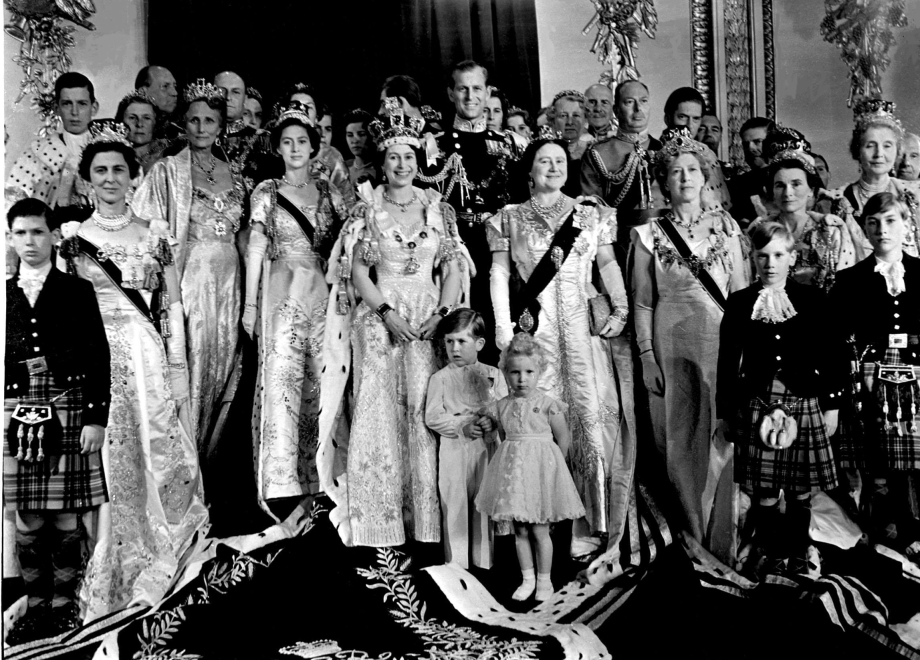On a chilly June morning in 1953, the world watched in awe as a young woman stepped into her destiny. Queen Elizabeth II's coronation was more than just a royal ceremony—it was the beginning of an era. At just 27 years old, Elizabeth ascended the throne, marking the start of one of the longest and most impactful reigns in British history. This event wasn't just about protocol and tradition; it was about a young woman shouldering the weight of a nation.
As the world tuned in to witness history, the coronation of Queen Elizabeth II became a symbol of hope and unity. It was a moment that bridged the gap between the old world and the new, showcasing the resilience and grace of a young queen who was about to lead her people through some of the most transformative decades of the 20th century.
But what exactly went into this monumental occasion? How did a young woman prepare for such a significant role? In this article, we'll delve deep into the coronation of Queen Elizabeth II, exploring the intricate details of this historic event and uncovering the fascinating story behind the young monarch who captured the world's attention.
Read also:Melissa Gilbert How Old Is She And What Defines Her Iconic Legacy
Table of Contents
- Queen Elizabeth's Early Life and Biography
- The Details of the Coronation Ceremony
- Symbolism Behind the Coronation
- Public Reaction to Queen Elizabeth's Coronation
- The Young Queen's Challenges
- Long-Term Impact of the Coronation
- Tradition and Modernity in the Coronation
- Global Perspective on the Coronation
- Legacy of Queen Elizabeth's Coronation
- Conclusion: Reflecting on the Coronation
Queen Elizabeth's Early Life and Biography
Early Years and Education
Before she became queen, Elizabeth Alexandra Mary was born on April 21, 1926, in London. She was the first child of the Duke and Duchess of York, who later became King George VI and Queen Elizabeth. Her early life was relatively quiet, as she wasn't expected to become monarch. However, everything changed when her uncle, King Edward VIII, abdicated the throne in 1936, making her father king and Elizabeth the heir presumptive.
Elizabeth's education was tailored to prepare her for her future role. She received private tutoring at home, studying constitutional history and law. Her tutors included Henry Marten, Vice-Provost of Eton College, and she developed a deep understanding of the British constitution and the responsibilities that came with being a monarch.
A Glimpse into Her Personal Life
Here's a quick look at some key details from Queen Elizabeth's early life:
| Full Name | Elizabeth Alexandra Mary |
|---|---|
| Birth Date | April 21, 1926 |
| Parents | King George VI and Queen Elizabeth |
| Education | Private tutoring, focusing on constitutional law and history |
| Marriage | Prince Philip of Greece and Denmark in 1947 |
Elizabeth's early years were marked by a strong sense of duty and responsibility. Even as a young woman, she understood the weight of her future role and embraced it with grace.
The Details of the Coronation Ceremony
Planning the Event
The coronation of Queen Elizabeth II took place on June 2, 1953, at Westminster Abbey. It was a meticulously planned event, with months of preparation leading up to the big day. Every aspect of the ceremony was carefully considered, from the guests' attire to the symbolic items used during the ritual. The goal was to create a spectacle that would not only honor the new queen but also inspire the nation and the world.
Key Moments in the Ceremony
Here are some of the most memorable moments from the coronation:
Read also:Scooter Braun Taylor Swift The Untold Story Of The Music Powerhouse Duo
- The Procession: Elizabeth traveled to Westminster Abbey in the Gold State Coach, a grand and ornate carriage that symbolized the majesty of the monarchy.
- The Anointing: In a deeply spiritual moment, the Archbishop of Canterbury anointed Elizabeth with holy oil, marking her as a sacred ruler.
- The Coronation Oath: Elizabeth swore to uphold the laws of her realms and govern her people with justice and mercy.
- The Crowning: The moment when the St. Edward's Crown was placed on Elizabeth's head, signifying her official ascension to the throne.
Each of these moments was steeped in tradition, yet they were also designed to resonate with a modern audience. The coronation was broadcast on television, allowing millions around the world to witness the event firsthand.
Symbolism Behind the Coronation
Meaning of the Crown Jewels
The crown jewels played a central role in the coronation, each piece carrying significant symbolism. The St. Edward's Crown, for instance, has been used in coronations since the 17th century and represents the continuity of the monarchy. Other items, like the scepter and orb, symbolize the queen's authority and her role as a protector of the faith.
These symbols weren't just ceremonial—they were reminders of the responsibilities that came with the crown. Elizabeth understood this and approached her role with a deep sense of duty and commitment.
Public Reaction to Queen Elizabeth's Coronation
A Nation Celebrates
The coronation was met with widespread enthusiasm from the British public. Streets were lined with cheering crowds, and celebrations took place across the country. For many, it was a moment of hope and renewal after the hardships of World War II. The young queen's calm demeanor and regal bearing won hearts, and people saw in her a promise of a brighter future.
Global Response
Internationally, the coronation captured the imagination of millions. It was one of the first major events to be broadcast on television, and people from all over the world tuned in to watch. The ceremony was praised for its grandeur and symbolism, and Elizabeth was hailed as a symbol of stability and continuity in a rapidly changing world.
The Young Queen's Challenges
Leading a Nation at 27
Becoming queen at such a young age presented its own set of challenges. Elizabeth had to navigate the complexities of international diplomacy, manage the affairs of the Commonwealth, and lead a nation that was still recovering from war. Her youth was both an asset and a liability—while it gave her energy and enthusiasm, it also meant she had to prove herself to skeptics who doubted her ability to lead.
Despite these challenges, Elizabeth rose to the occasion. She surrounded herself with trusted advisors and relied on her strong sense of duty to guide her decisions. Over time, she earned the respect and admiration of people around the world.
Long-Term Impact of the Coronation
Setting the Tone for a Reign
The coronation of Queen Elizabeth II set the tone for her long and distinguished reign. It established her as a symbol of continuity and stability, qualities that would define her leadership over the decades. The ceremony also marked the beginning of a new era in British history, one that would see the country navigate the challenges of decolonization, economic change, and social progress.
A Legacy of Service
Throughout her reign, Elizabeth remained committed to her role as a servant of the people. She worked tirelessly to uphold the traditions of the monarchy while also embracing change when necessary. Her dedication to duty and her unwavering sense of responsibility have made her one of the most respected monarchs in history.
Tradition and Modernity in the Coronation
Blending the Old and the New
The coronation of Queen Elizabeth II was a masterful blend of tradition and modernity. While it adhered to centuries-old rituals, it also incorporated elements that reflected the times. The use of television to broadcast the ceremony, for instance, was a groundbreaking move that brought the event to a global audience. This fusion of old and new helped the monarchy remain relevant in a rapidly changing world.
Global Perspective on the Coronation
Views from Around the World
Reactions to the coronation varied across the globe. In Commonwealth countries, it was seen as a moment of unity and celebration. In other parts of the world, it was viewed with a mix of admiration and curiosity. Some saw the monarchy as an outdated institution, while others admired its ability to adapt and endure. Regardless of perspective, there was no denying the impact of the coronation on global culture and politics.
Legacy of Queen Elizabeth's Coronation
A Lasting Impact
The coronation of Queen Elizabeth II remains one of the most significant events in modern history. It marked the beginning of a reign that would span seven decades and witness some of the most transformative changes in human history. Elizabeth's coronation wasn't just about a young woman becoming queen—it was about the enduring power of tradition, the importance of duty, and the ability of one person to inspire millions.
Conclusion: Reflecting on the Coronation
The coronation of Queen Elizabeth II was more than just a royal ceremony—it was a defining moment in history. A young woman stepped into her role as monarch with grace, dignity, and a deep sense of responsibility. Over the years, she proved herself to be a leader who could navigate the challenges of a changing world while remaining true to the traditions of her office.
As you reflect on this remarkable event, consider the lessons it offers. Leadership is about more than power—it's about service, commitment, and the ability to inspire others. If you enjoyed this article, why not share it with a friend or leave a comment below? Together, let's keep the legacy of Queen Elizabeth II alive for future generations.


